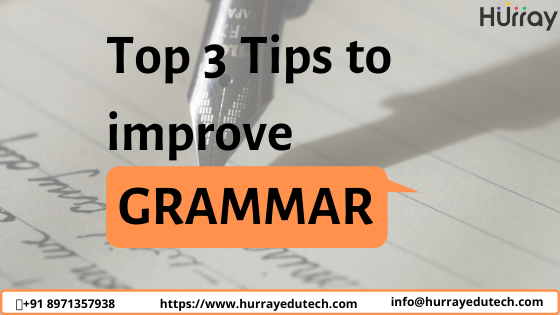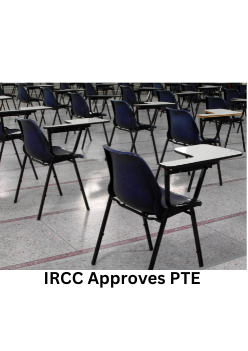Why bother about grammar? The answer is this – the rules of grammar ensure that you are able to put words together in a way that will make sense to any reader or listener. With such simple and important logic behind it, grammar not only becomes something you have to learn well, but something that you want to learn well!
We’re going to list out and explain as simply as we can, a list of the most basic grammar rules that any speaker of English must know – and once you know them well too, cracking IELTS, especially the reading and speaking tests, will be a breeze!
-
Forming Tenses
Verbs are action words – they describe a particular kind of action e.g. to run, to read, to know, to have. Actions always happen in a particular time – whether that time is the present, the past or the future. Depending on which time it is, the verb is written slightly differently – these differences are called tenses. Just to give you a reminder of how tenses work, here are the 3 most basic ones:
-
Present: She runs everyday – in most cases, present tense is made by adding ‘s’ to the verb.
-
Past: She planted a tree – in most cases, past tense is made by adding ‘ed’ to the verb.
-
Future: She will go to college next year – in most cases, future tense is made by adding ‘will’ before the verb.
Key tip: while writing, it is important to maintain the same tense when talking about a particular idea. This rule applies to a single sentence, or even to a whole paragraph that is talking about a single idea.
She ran to the bus and jumps in – Wrong
She ran to the bus and jumped in – Right
For each of these tenses there are many variations – such as continuous, perfect etc. To help you brush up on these, our Hurray IELTS trainers are always ready to help.
-
Using Adjectives
Adjectives are describing words – they tell you something about a thing e.g. a beautiful girl, a big elephant, a green tree. Similarly, when a word describes a verb this way, it becomes an adverb e.g. he ran quickly.
Key tip: there are many kinds of adjectives, which are often used together – when you use multiple adjectives in a row, there is a particular order to be followed. Try to keep this order in mind if you plan to use multiple adjectives in your writing test (do not worry about the speaking test – this rule is not as important for that).
-
Quantity/number – quality/opinion – size – age – shape – colour – proper adjective (e.g. nationality) – purpose
-
E.g. “These are her two – prettiest – (and) biggest – ancient – round – blue – Chinese – ceremonial vases”
If you can come up with an example like the above which you can memorise, you will always remember the order!
-
Using Conjunctions and Prepositions
Conjunctions are words that join two things together – either two words, two ideas, or two sentences to make a single sentence.
-
He was rich and handsome.
-
She is able to play the piano well because she practices everyday.
-
I know you are busy, but I need your help.
Others include: or, either, neither, yet, however, therefore, thus etc.
Prepositions are words which indicate the position of something. The clue is in the word – preposition.
-
He sat on the chair.
-
There was gold buried under the palace.
-
The boy was standing near the girl.
Others include: above, beneath, beside, next to etc.
Things can sometimes get a little confusing – such as when to use the conjunction “not only...but also”, or when to use beside or besides. Do not hesitate to ask your trainer to help you figure it out!
As you might have guessed, this blog post is just the tip of the iceberg when it comes to grammar. So for all the assistance you might need to polish up your grammar reach out to Team Hurray – you can email us at info@hurrayedutech.com or call us on 8971357938. We also have a Grammar Blog where we post more detailed articles – check it out!











Post Comments